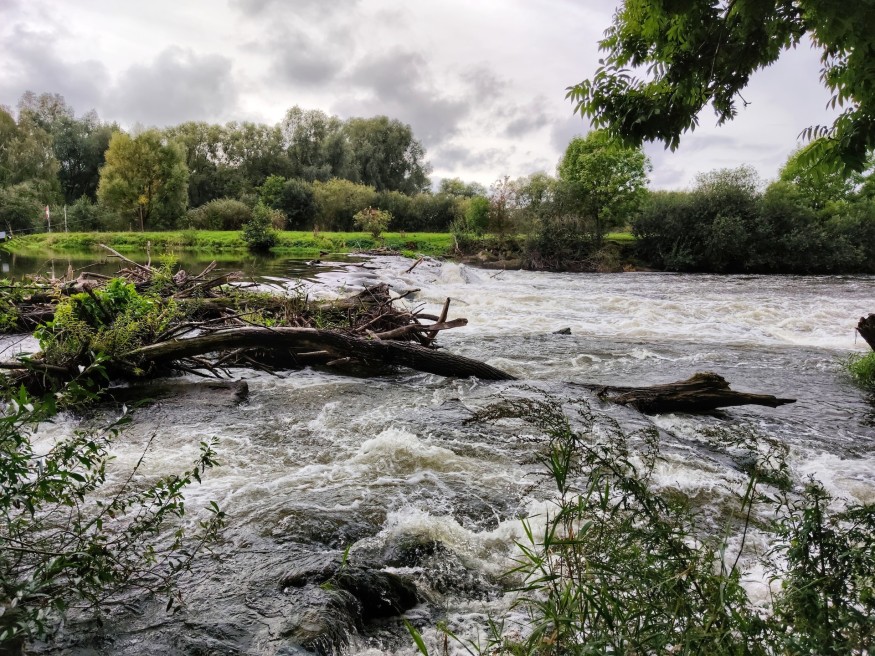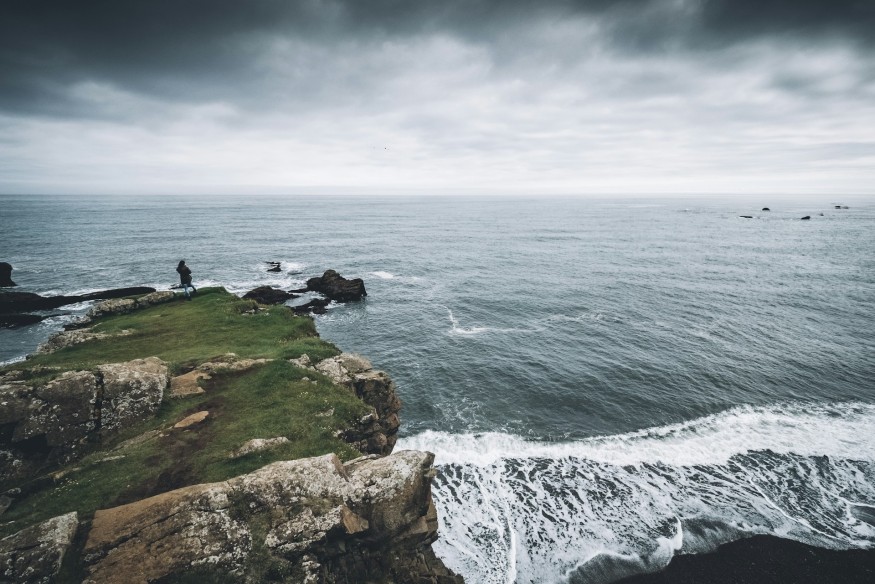
November 13, 2023 - 473 views
As another yellow weather warning is issued for North Wales on Monday 13th November, Met Office chiefs have offered advice on what to do if you are caught out.
Storm Debi is the latest weather front to cause problems for North Wales communties and the risk of high winds, some rain and high tides are in place until the early hours of Tuesday morning.
At 8am, 20 flood warnings had been issued for Wales including along the North Wales Coast, Lleyn Peninsula and the West coast of Anglesey. Liverpool's high tide just before 11am has increased the risk of flooding in low lying parts of North Wales and residents are urged to take preventative action.
If you are evacuated:
Listen to advice from the emergency services and evacuate when told to do so.
You will be taken to an evacuation centre run by your local council. Free food and bedding is provided but you will need spare clothing, essential medication and baby care items if you have an infant.
Most evacuation centres will let you bring your pets. You should take pet food and remember to put cats and small animals in a pet carrier or secure box.
Report something
Report blocked drains and gullies
If you are concerned about flooding caused by blocked drains, gullies or water running off fields, report this to your local authority.
Report blocked rivers and landslides
If you are concerned about blocked rivers, landslides or flooding from rivers and the sea please report this immediately to the National Resources Wales 24 hours incident line on 03000 65 3000.
Report problems with gas, electricity or sewerage
If you are concerned about floodwater affecting your gas, electricity, water or sewerage services, please call your supplier.
For sewer flooding, or if your toilet or sink is backing up during floods please call your local water company.
Sandbags
Your local authority may have some sandbags ready to deploy at times of flooding, but their priority is to protect the public at large.
You should check with your local authority in advance to find out what their policy is, and if there is a charge for the service.
If your local authority doesn’t supply sandbags, you can buy your own supply from DIY stores and builder’s merchants.
Find more advice on sandbags and how to use them to prepare for a flood.
Find local information
- Call Floodline on 0345 988 118 - Check local Facebook groups.
- Get traffic updates from the Traffic Wales website.
- Use our live warning map to see if you're at risk from river or coastal flooding.
- What to do after a flood.
Make sure it's safe to return to your property
Take care as there may be hidden dangers in floodwater, such as sharp objects, raised manhole covers and pollution
flood water might have caused structural damage to your property.
If your electricity supply has not been switched off at the mains, get a qualified person to do this. DO NOT touch sources of electricity when standing in flood water.
Making an insurance claim
In almost all cases, the insurance company will send a loss adjuster to look at your property. They will confirm what repairs and replacements are needed and which elements are covered by your policy.
Ask the insurance company
- How long it will be before the loss adjuster visits.
- If you are to clean your property or if they will get a company to do it for you.
- If they will help pay for repairs that will reduce potential flood damage and therefore reduce costs if it happens again.
- If they will provide you with temporary accommodation - this can be a nearby B&B, static caravan or rented house. You don't have to accept the first place you are offered.
Always make your own record of flood damage:
- Use a permanent in pen to mark on the wall the height the flood water got to. Do this in every room affected by flooding.
- Photograph or video your damaged property and list the damage to your property and belongings.
- If your insurance company covers you for loss of perishable good, make a list of all the foods you throw away. Include any food touched by flood water and anything in your fridge or freezer ruined by loss of power.
Top tips:
- Confirm the insurance company will pay for any services or equipment you need.
- Make a note of all telephone calls. Record the date, name and what was agreed.
- Keep copies of letters, emails and faxes you send and receive.
- Keep receipts.
- Don't throw anything away until told (except ruined food).
- If you rent your property, contact your landlord and your contents insurance company as soon as possible.
If you do not have insurance, your local council should be able to provide information on hardship grants or charities that may be able to help you.
Cleaning your property
Pump water out of your property using a generator. Keep the generator outside as they produce carbon monoxide fumes which can kill.
Clean and disinfect your property. A garden hose is useful but don't use high-pressure hoses because they blast contaminated matter into the air.
Keep doors and windows open to dry out your property or use a dehumidifier with the windows and doors closed.
Make sure your gas and central heating has been checked by an engineer before turning it on.
Local councils usually provide slips and extra rubbish collections for items you can throw away.
Floodwater is dangerous
It can be contaminated with sewage, chemicals and animal waste so always wash your hands thoroughly.
Never walk, drive through, or let children play in floodwater - six inches of fast flowing water can knock you over and two feet of water will float your car.
Flood water can rise very quickly - never walk on sea defences or river banks and be aware that bridges may be dangerous to walk or drive over.
Be careful of fallen trees and power lines. The flood water can also cause manhole covers to come off and flood culverts.







